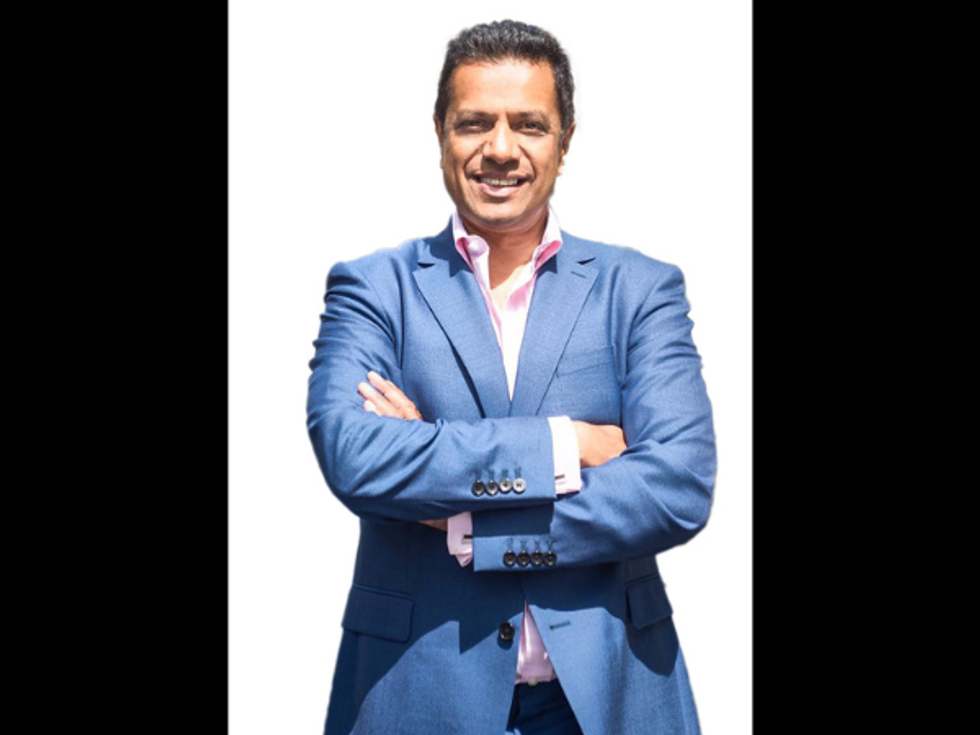By A fortunate coincidence, India marks its 75th anniversary as a free country at the same time as the 150th birth anniversary of Sri Aurobindo.
Aurobindo (1872-1950) was a poet, revolutionary, philosopher, mystic, and yogi par excellence. He was not interested in huge statues, grandiose projects, or big institutions in his name. He just wanted a better new world to emerge from the present chaos.
Aurobindo was a revolutionary leader, the ‘Prophet of Indian nationalism’, in Karan Singh’s words. With his spiritual companion, Mira Alfassa (1878-1973), he established the Sri Aurobindo Ashram, in Pondicherry, south India.

Founded in 1968 by Alfassa (known as the Mother), Auroville currently has a population of 3,200 people, with the Auroville Foundation owning 3,300 acres of land. A ‘galaxy plan’ envisages a city of 50,000 residents.
The essence of Aurobindo’s philosophy is that people’s conscious and spiritual evolution is the only way to solve some of the problems facing humanity. These intractable challenges include violence and war; social and political inequality and instability; and the man-made ecological threat to our habitat, which puts the survival of species at risk.

Along with its offshoots – the Sri Aurobindo Society and Auroville – the ashram and the disciples of Aurobindo have spread his life-affirming message worldwide.
Aurobindo’s father, Krishnadhan Ghose, was a surgeon and an Anglophile. The family moved to England when Aurobindo was seven. He attended St Paul’s School, London, and then got a first class in the Classical Tripos at Cambridge, a rare feat for a non-European.
His father wanted him to be an Indian Civil Service officer. Aurobindo passed the written exams, but could not qualify because he failed to appear in the mandatory riding test. Instead, a meeting in 1892 with the ruler of Baroda, Sayajirao Gaekwar, secured him service in Baroda state.
Aurobindo returned to India the following year when he was 20 years old. Already a prodigy, Aurobindo came to the forefront of the Indian national movement, causing a split in the Congress party during the Surat session of 1907.
Along with freedom fighters Bal Gangadhar Tilak and Bipin Chandra Pal, he belonged to the so-called garam dal or extremist faction of the party, who believed that independence from colonial rule could not be secured just by “petition, prayer, and protest”.
In 1907, Aurobindo moved to Calcutta [now Kolkata] to become the principal of the newly established National College (now Jadavpur University). He was also the brains behind a revolutionary group.
Arrested in the Alipur bomb case (when an attempt was made to murder the district judge of Muzaffarpur), Aurobindo spent a year in jail from 1909-1910.
A few months after his release, he decided to leave British India for French Pondicherry. He withdrew from politics to practise yoga. From 1910 until his death in 1950, Aurobindo wrote a series of extraordinary books including The Human Cycle, The Idea of Human Unity, Essays on the Gita, The Synthesis of Yoga, The Secret of the Veda, and The Life Divine.
He also wrote Savitri, one of the longest poems in the English language, with more than 24,000 lines.
One of Aurobindo’s works was published posthumously as The Foundations of Indian Culture. Originally a series of articles in his own journal, Arya, it was meant to be a vigorous critique of imperial attempts to belittle Indian civilisation.
Aurobindo begins by stating unequivocally how a culture or civilisation may be evaluated: “A true happiness in this world is the right terrestrial aim of man, and true happiness lies in the finding and maintenance of a natural harmony of spirit, mind and body.
“A culture is to be valued to the extent to which it has discovered the right key of this harmony and organised its expressive motives and movements.”
Looking at his own times, Aurobindo recognised that “an appearance of conflict must be admitted for a time, for as long as the attack of an opposite culture continues.” But later, this very conflict, will “culminate in the beginning of a concert on a higher plane”.
In the final stage, nations may even sacrifice themselves for the good of the whole of humanity, foregoing their selfishness and self-interests.
We are still far away from Aurobindo’s ideal of human unity. But more than ever, we need to work towards it to ensure global peace and prosperity.
As we are celebrating the 150th birth anniversary of Aurobindo this year, a high-level committee to commemorate the event was constituted by the Indian government.
The committee comprises 53 members from various walks of life, including former prime ministers Dr Manmohan Singh and HD Deve Gowda, eight cabinet ministers, chief ministers, governors, artists and spiritual leaders.
During the inaugural meeting, India’s prime minister Narendra Modi spoke of the two aspects of Aurobindo’s philosophy – ‘revolution’ and ‘evolution’. While the first is relatively well-known, the second is practically unknown, even in India.
During his speech, the prime minister fondly recalled his discussions as Gujarat chief minister with Kireet Joshi, an eminent disciple of Aurobindo.
Joshi, who had served as chairman of the Auroville Foundation, pointed out to the prime minister that it was India’s “responsibility to offer spirituality” to nations across the globe.
The objectives of the UK-based Sri Aurobindo Trust are to harness activities and initiatives to further the teachings of Aurobindo and the Mother.
Founder trustee Koolesh Shah is a devotee of Sri Aurobindo and the Mother, and chairman of the Sri Aurobindo Trust. Thanks to the generous support of the Trust, SOAS University of London has offered modules on ‘Modern Indian Philosophy’ for the past four years, with a specific focus on the teachings of Sri Aurobindo and the Mother.




